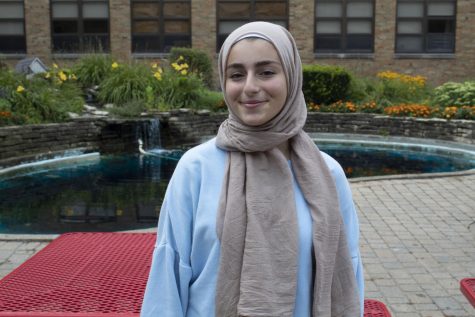Brett Kavanaugh’s nomination stirs conversation
Courtesy of Wall Street Journal
RDN students tuned in to view Christine Blasey Ford accuse Supreme Court Justice Brett Kavanaugh of sexual assault in front of the Senate Judiciary Committee.
Divided senators voted 50-48 on Saturday, Oct. 6 confirming Brett Kavanaugh’s nomination to the Supreme Court, despite him being accused of sexual assault.
President Donald Trump nominated Kavanaugh to become an Associate Justice of the Supreme Court in July after the retirement of Anthony Kennedy. At the end of the confirmation process, Kavanaugh was accused of sexually assaulting Christine Blasey Ford, a 51-year-old research psychologist and a professor at Palo Alto University, while they were both in high school in 1982. While the voting was postponed, Deborah Ramirez and Julie Swetnick alleged different instances of sexual assault.
Ford decided to come forward after hearing misrepresentations of her account and being approached by the press. According to The Washington Post, 17-year-old Kavanaugh pinned her down, put his hand over her mouth, and groped her while his friend watched.
“I think that the nomination indicates a total disregard for the trauma of Dr. Christine Blasey Ford, and placed partisan politics above the rights of women,” said Nadia Karim, junior. “Entirely, it’s just totally unacceptable.”
The Democrats are playing a high level CON GAME in their vicious effort to destroy a fine person. It is called the politics of destruction. Behind the scene the Dems are laughing. Pray for Brett Kavanaugh and his family!
— Donald J. Trump (@realDonaldTrump) September 26, 2018
Social media was a place many were able to voice their opinions and support for Ford. Many posted side to side images of Anita Hill, sworn in to testify before the United States Senate Judiciary Committee on the confirmation of Judge Clarence Thomas in October 1991, and Ford.
“I was really hoping that Christine Ford wouldn’t become another Anita Hill but the discourse in our politics right now has no room for sympathy or justice,” said Amani Myran, senior. “Both parties are trying to push their own agendas, human lives are damned.”
Besides the issue of just sexual assault, some believe that a lot of people specifically in the Senate don’t take sexual assault and their morals seriously. The question of whether or not Democrats would vote against a member of their party has an unsure answer.
“The majority and minority in the senate and house were flipped; I don’t think the Democrats would have acted any different than the Republicans are acting now,” Myran said. “I would hope they would have morals and be ethical, but it’s unlikely.”
In recent years, the school has responded to the national issue of sexual assault with teachers discussing related current events in class, physical education classes incorporating self-defense units into the curriculum, and performances shedding light on assault and gender inequality.
Last year, a few members of the Forensics team put on a performance about sexual assault and rape, making it to state, and placing fourth overall. The students also performed their piece for the school.
“There were many students who came up to us and thanked us for the performance and had a very positive, appreciative reaction,” said Emily Goggin, senior and member of the Forensics team. “But there were also some who had a negative, aggressive reaction, making rude comments to the performers and complaining to teachers, denying the fact that this is a problem.”
The nomination raised more controversial conversation rooted in the problem of sexual assault and whether or not there is sexual assault and harassment culture at Hinsdale Central. Overall though, the issue remains murky because according to the National Sexual Violence Resource Center, rape is the most underreported crime, with over 60 percent of sexual assaults going unreported.
“The number of rapists who don’t get arrested, even if they’re accused, is crazy high,” Myran said. “It’s really disappointing, but I’m not surprised. We have a history of not believing survivors.”

Lana Jawich is a senior writer for Devils' Advocate who enjoys painting and playing soccer. When she’s not annoying her siblings or spacing out in physics,...












